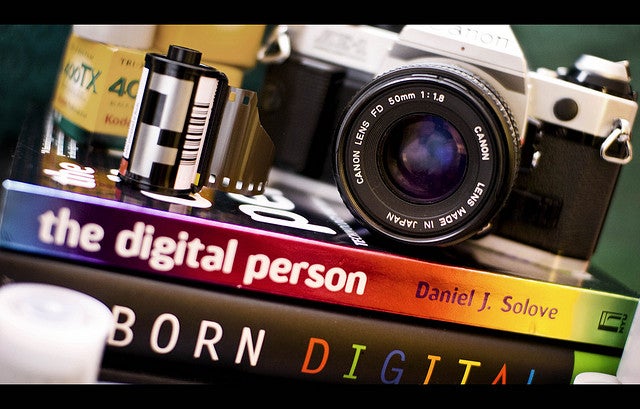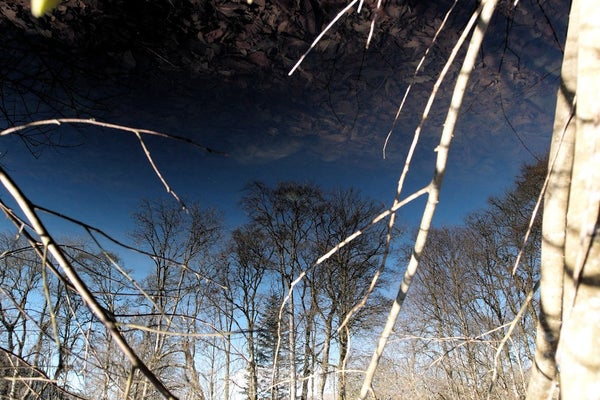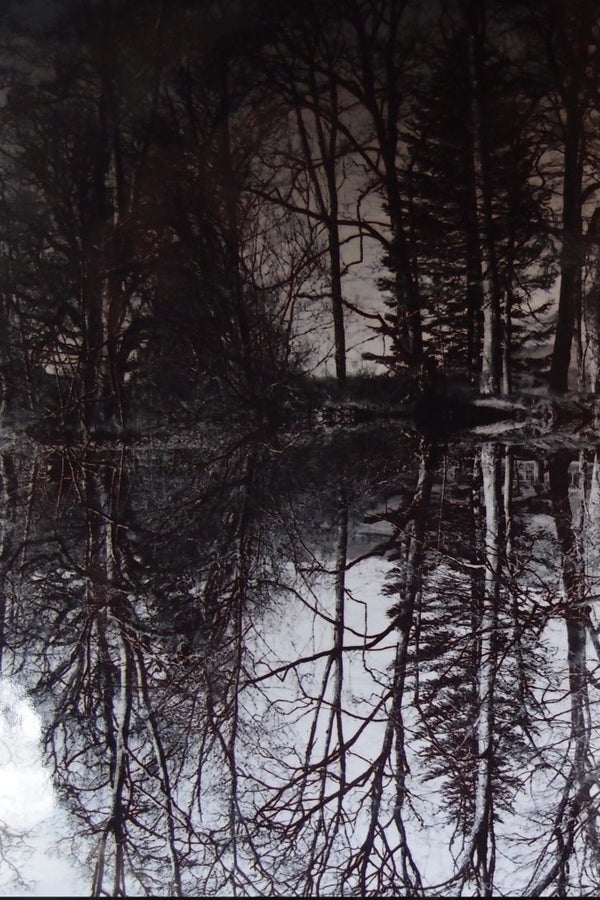Forgot Password?
Please enter your email address to receive a link for resetting your password.
Thank You
You will receive an email with further instructions. Please contact customer support if you need any further assistance.
Please verify your email address
A verification link has been sent to your email to activate your account. The link will be valid for 1 hour.
Please check the spam inbox if you can't find the email. If you still can't find it, we can resend it.
A verification link has been sent to your email 00:00


Jenn Vargas/flickr
The choice between a film camera and a digital camera can be challenging for professional and novice photographers alike. Knowing the differences between each medium is key to deciding which one is right for you.
For most people these days, the choice between an easy-to-use digital camera and an old-fashioned analog one is a no-brainer. But there’s been a recent resurgence of film that’s leaving all the purists out there feeling vindicated.
With no clear consensus amongst the professional community, the rest of us are left to wonder: which type of camera really takes the most amazing photographs?
Disappointingly, there isn’t one simple answer to this question. Depending on the type of photos you’re interested in taking, one may be the better choice over the other.
There are strengths and weaknesses of both digital and film photography, and as the battle between these camps rages on, there are a few points those of us caught in the confusing crossfire should consider before we make our own decision. For the purposes of simplicity, here we’ll just compare the digital and film versions of point-and-shoot or “compact” cameras

Lucy Cox/photobucket
Digital cameras are easy to use and offer practically infinite storage. All your photos are instantly saved and can be easily uploaded to your computer when you’re ready to use them. This means you can take lots of shots, including experimental ones with different angles or vantage points, because you won’t be wasting any film if they don’t turn out well.
Another plus is that digital cameras easily adapt to any situation or changing light without affecting the quality of the photos. It’s this kind of freedom to shoot anywhere and any time that makes them a favorite for many.
For both hobbyists and professionals, digital cameras are useful because they offer the opportunity to get instant feedback by checking your work in real time. This gives you the ability to make changes if your photos aren’t turning out the way you want.

Lucy Cox/photobucket
The benefits of film photography, on the other hand, aren’t so self-explanatory. While digital photos may be easier to use and often seem to produce clearer pictures, there are so many variables that often result in film producing an overall more attractive, higher-resolution product.
The main advantage that film has over digital is in Dynamic Range, a quality that depends on so many factors that it can be tough to really define. In simple terms, Dynamic Range refers to a camera’s ability to retain details in every part of a given shot, even if the frame contains a wide range of colors, depths, and shadows.
Digital’s weakness here is in the way its sensors react to color. Digital sensors store integer numbers that determine an image’s resolution. With high-resolution cameras, this system can create stunningly accurate images.
Unfortunately, however, the system’s dependence on integers means that there is a finite number of colors that can be depicted in the final product, which means that pictures with varied colors and gradients might turn out overexposed.
On emulsion film, by contrast, there’s no limit to the number of colors than be accurately captured in the same frame. This makes film or analog cameras much more forgiving when it comes to things like overexposure.
No matter where you land in the great “digital versus film” debate, the objective is the same: to create beautiful photographs. And Printique allows you to do just that, regardless of how your photos were taken.
With a range of sizes and finishes, Printique prints your most valued work on professional quality paper quickly, easily, and at competitive prices. Each photo is personally inspected to ensure the highest quality and then sent out in safe, secure packaging, guaranteeing that your photos arrive in perfect condition.